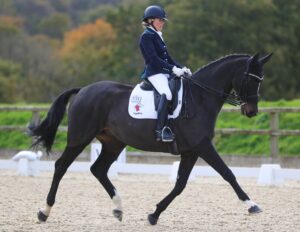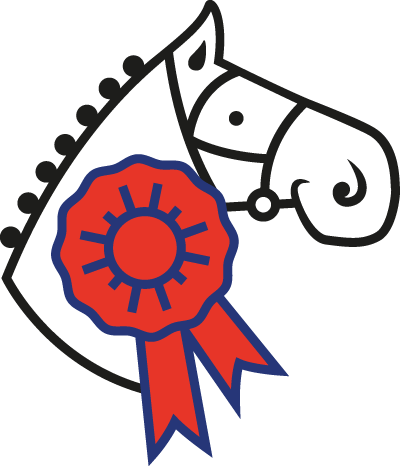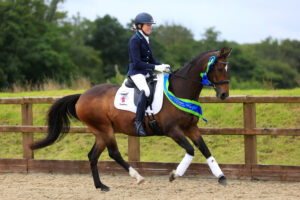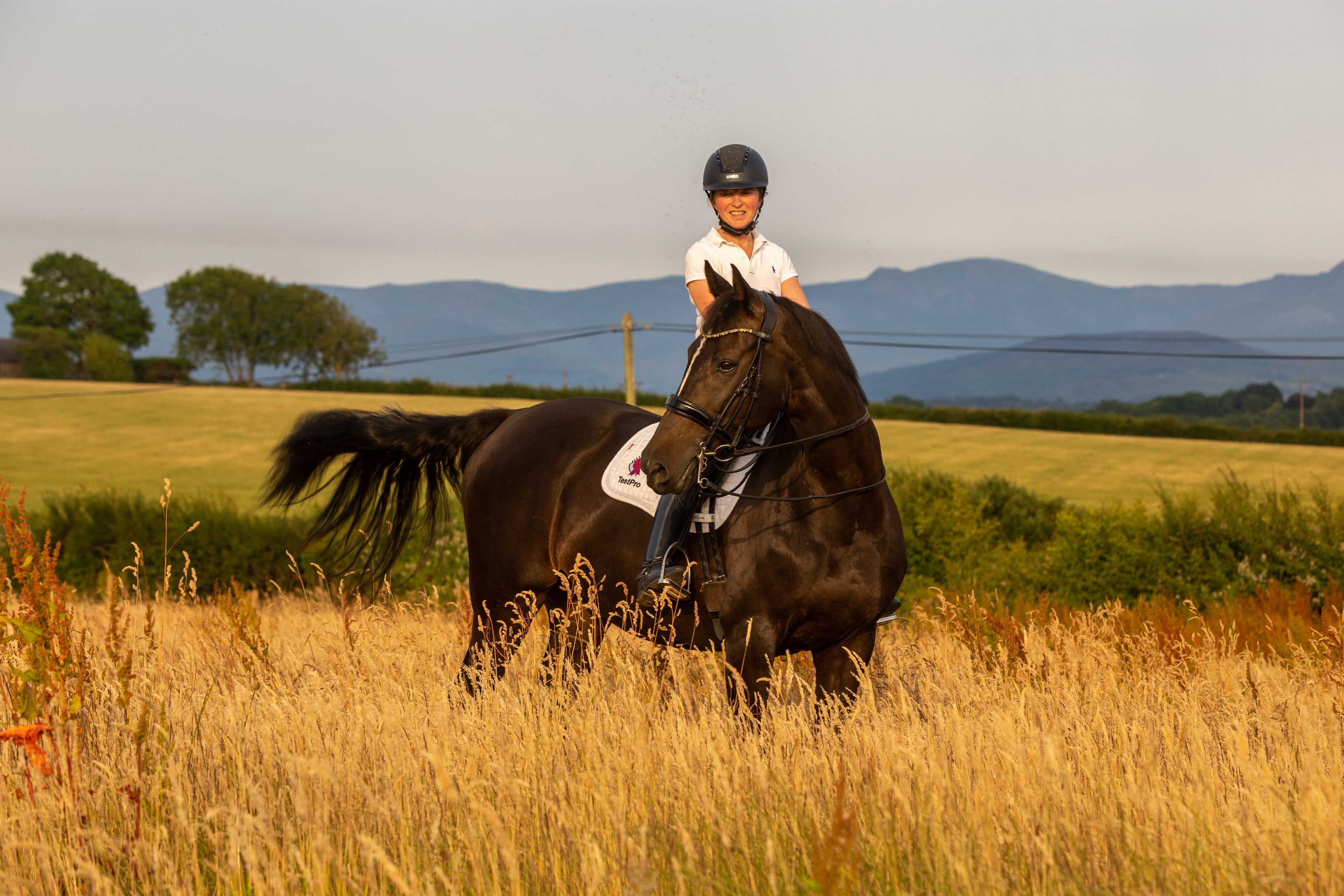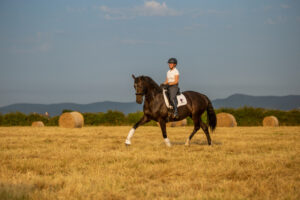
I have ridden in many warm up areas over the years, I’ve ridden on grass in a huge field, in a tiny indoor smaller than a 20×40 and equally in a big outdoor arena but with loads of people at regional championships. They ALL have their challenges and the most important piece of advice that I can impart to you is to prepare and plan!
So what does that look like and involve? Let’s take the two extremes the tiny arena and the big one filled with loads of people as our examples.
Tiny indoor arena
No doubt on the door of the arena will be guidance as to the maximum number of horses in the arena at one time, this is basic risk assessment territory. If there isn’t then we could be entering a scene from the Calgary stampede!
If you know the venue and this is not a surprise to you then you can do a couple of things.
Option 1 – if on a young or nervous horse, you could ask to be put on first or second or after a break of some sort. That will ensure slightly less people in the warm up.
Option 2 – check out the number of people in the arena, try to do your walk work outside before you go into the arena then proceed to go in.
Option 3 – put a red ribbon in your horse’s tail or wear a hi viz jacket. Most riders will try and give you more room if they spot a red ribbon, there are other ribbon colours for young horse etc., but I find people are not aware of them
Option 4 – as you go into the arena shout loudly to the other competitors that you are on a young/nervous horse and to give you some room, some will help, others will probably have their ear pieces in and ignore you!!
Whatever your option you need a plan for your working in. So get the basics done, walk, trot and canter on both reins. Start on the right rein if you do not want to be hemmed in. Put in a few circles, get some trot walk trot transitions in (be aware of who is behind you) and if you can try a centre line.
If you are on the right rein this can be a useful time to practice straightness, a little leg yield and your transitions as you will not easily bump into anyone.
If I am on the outside on the left rein and someone is walking but on the inside I often shout ‘coming on your outside’ just in case their horse is a bit tricky or they start drifting onto the track, this can also happen if they are leg yielding to the track and haven’t spotted you.
Large outdoor arena with lots of people
So what happens when you make it to the Regionals or a National Championships and the arena is huge but there are still loads of people?
This is where you need to know your horse well and how they will react. Hopefully you have had a chance to work in a similar environment before, if not, in the run up to the competition try to go to a local riding club event and have a group lesson or ask a few friends to do an arena hire with you and try to recreate lots of horses whizzing around. Some venues do arena hire with all the boards and flowers so that would be a great opportunity to get together with friends.
Now we just have to tackle our nerves about walking into a busy warm up and trying to get ourselves prepared. Make sure you have a plan that works through the exercises that you need to do, your trainer can help you with this in the run up to the competition. The more you know your routine the better! You might have your trainer with you and ‘in your ear’ so they will be able to keep you calm and get the most out of you.
Remember the warm up is not the time to be practising everything, it is for ensuring that you are mentally and physically prepared for the test. By all means do a few movements from the test but if a half pass is sticky in training the previous day it isn’t going to change massively once you get inside the boards!
Hi-Viz or wearing something distinctive can definitely be of help in a large warm up arena, especially for your connections there to help you. As I said for the small arena, those riders going around listening to music will see you a bit better.
Sometimes it can be difficult, bizarrely, to make space to go sideways or ride a circle in a big and busy arena. So when you go in, try to spot a piece of the arena that no one seems to be using. It is normally the bit furthest away from the entrance/exit and consequently the stewards (sorry!!). If you need room go to that point and start riding some circles slightly off the track, it can help you to ‘stake your claim’ and settle your horse.
Horses being the predictably unpredictable beings that they are, will do stuff! I have seen people fall off, horses charge across arenas, dogs running across the warm up and a few interesting shapes thrown with riders clinging on. Stay in your zone, come back to walk, try to stay out of the way until everyone is safe again, then carry on as if nothing has happened! What other people are doing does not have to affect you.
So recap
Prepare! Before you go acclimatise you and your horse to the situations you may encounter
Plan out the warm up routine with the exercises that you might need. Helps to have a couple of plans depending on how you are both feeling on the day.
Remember you have as much right to warm up your horse as anyone else! Try not to be intimidated by any big names, and also don’t watch them or change your routine!
Lastly know the arena rules
-
- Left to left
- Shoulder in, travers and counter canter take precedence on the track (so ignore left to left in this situation)
- If walking get off the track
- Do not halt on the track
- Do not stop and start chatting to your mates/helper you could be blocking someone trying to go across the diagonal
- Do not ride too close to another horse’s bum or hem them in on the track or let your whip touch another horse
- Politely shout/make them aware of you if you are coming up fast behind them and need the outside track
- Be aware that riders with a white armband are visually impaired and those with a blue armband are hearing impaired so give them a bit of space.
- When entering an arena, in particular indoor or where the gate/entryway is in a difficult position announce that you are coming in so that riders can circle away.
- I always say I am leaving if there is only one horse left in the warm up just as a courtesy in case it might be an issue.
Hopefully I will see you all in a calm and organised warm up soon!
